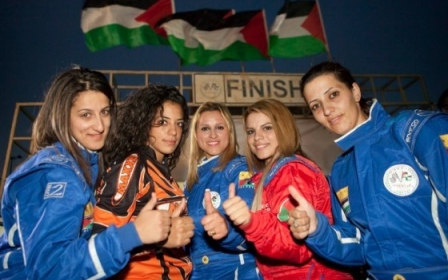Calls to rerun 2022 World Cup bid after fresh corruption allegations against Qatar

Football chiefs, anti-corruption experts and key politicians have called for the 2022 World Cup competition to be re-run due to the allegations of corruption and bribery, which surfaced today.
Documents leaked to the Sunday Times reveal that Qatar’s top football official Mohamed Bin Hammam, appears to have secured Qatar’s victory in the race to host the 2022 World Cup tournament through a covert campaign of secret payments.
Hammam, the former vice president of FIFA - the world football association’s governing body - allegedly used slush funds (covert reserve funds) from his bank accounts to make various payments to senior football officials, in order to sway their support in favour of the tiny Gulf monarchy. These payments are claimed to be up to $5m in total.
Hammam was forced to resign his committee membership in 2011 after the football's global governing body found evidence of corruption, surrounding his failed campaign for its presidency. He has since been banned from all football related activities by the body.
“There is now an overwhelming case that the decision as to where the World Cup should be held in 2022 should be rerun,” John Whittingdale, chairman of the Commons culture committee said in response to the allegations.
New MEE newsletter: Jerusalem Dispatch
Sign up to get the latest insights and analysis on Israel-Palestine, alongside Turkey Unpacked and other MEE newsletters
In separate comments quoted in the Guardian newspaper, Whittingdale also called for a “complete change in the way that FIFA operates” and asked for FIFA president Sepp Blatter to resign for repeatedly turning a blind eye or refusing to accept evidence demonstrating corruption.
"He should go," said Whittingdale.
Jim Boyce, FIFA vice-president, has likewise come out in favour of rerunning the vote if allegations that widespread corruption was involved in the bid are proved, reported the Guardian.
The decision to host the cup in Qatar has long been controversial with Blatter admitting last month that it had been a “mistake” to hand the tournament to Qatar due the high risk of its searing desert temperatures which could be harmful to the players.
During the selection process, the FIFA inspection team ranked Qatar as the only "high-risk" option for the games, but Qatar was still chosen by 14 of the 22 voting members of the executive committee in December 2010.
Although FIFA has been running an investigation into alleged corruption in the bidding contests for the 2018 Russian and the 2022 Qatari World Cups for two years, Michael Garcia, FIFA’s top investigator is now reportedly due to meet Qatar’s 2022 bid committee for the first time face-to-face since these allegations first surfaced in the Telegraph newspaper on 17 March. However, according to the Sunday Times report Garcia is unlikely to meet with Hammam directly.
The allegations have been built on files compiled through a database of millions of emails, accounts and other documents that show Hammam had contact with the leaders of the FIFA selection committee and arranged lavish trips for them and their families. During those trips, Hammam then allegedly offered the football officials large sums of money in exchange for their support of Qatar during the bidding process.
The allegations include the bribery of Executive Committee (ExCo) members from the World Cup Qualification's African Football Confederation (CAF), including Namibian Football Association President John Muinjo, Ivory Coast FA’s Anouma and president of the Botswana FA David Fani, among others.
The Executive Committee is the FIFA's main decision-making body. It meets at least twice a year and is responsible for determining the dates, locations and format of tournaments. It consists of a president elected by the congress, eight vice-presidents and 15 members that are appointed by the world's six regional confederations and associations, including the CAF.
FIFA’s official rules of conduct ban the member association and bid committees from profiting monetarily or gaining any kind of personal advantage that might directly or indirectly influence any part of their FIFA decision-making duties.
While Hammam reportedly declined to respond to correspondence and phone calls from the Sunday Times last week, members of the Qatar bid committee have denied links to Hammam and insisted that they were not involved in any kind of improper conduct.
FIFA is due to hold its annual congress in Brazil on 10 June. Discussions of the claims are expected to significantly occupy the meeting agenda.
Middle East Eye delivers independent and unrivalled coverage and analysis of the Middle East, North Africa and beyond. To learn more about republishing this content and the associated fees, please fill out this form. More about MEE can be found here.




